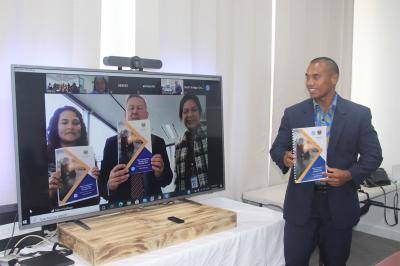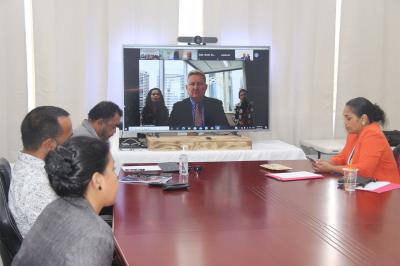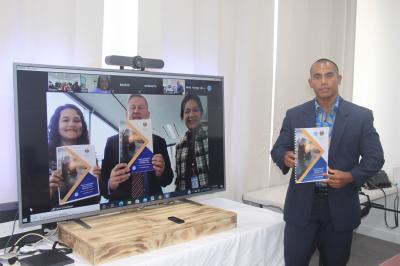The Government of the Republic of Nauru today held the virtual launching of the Nauru National Integrated Infrastructure Strategic Plan which outlines the government’s infrastructure investment and management priorities for the next five to 10 years.
The Minister for Commerce, Industry and Environment, Climate Change and Infrastructure Development, Rennier Gadabu launched the strategic plan at the Civic Centre, Aiwo District. The Nauru’s NIISP is a guide to public infrastructure investment planning and asset management over a 10-year horizon. “The Government of Nauru is excited that the NIISP will provide the Government with a basis to present priority infrastructure projects to development partners and the private sector for financing” said Minister Gadabu.
The recovery phase of COVID-19 highlights the importance of infrastructure in stimulating the economy through job creation and provides other opportunities for investment. The endorsement of the Nauru NIISP is positive move for Nauru as it tries to manage and minimize the impact of the COVID-19 pandemic. The NIISP aligns to Nauru’s National Sustainable Development Strategy (NSDS) 2019-2030 priority development areas. “The NIISP integrates investment planning into a broader asset management framework to ensure that existing infrastructure is adequately maintained” Nauru’s Secretary for Finance said.
The Nauru Integrated Infrastructure Strategic Plan takes into account the Government’s development goals, demands for infrastructure and the current condition and capacity of existing infrastructure assets” said Gabrissa Hartman, Secretary for Infrastructure Development
The Nauru Integrated Infrastructure Strategic Plan was prepared by the Nauru Government with technical assistance from the Pacific Region Infrastructure Facility (or the PRIF) in close coordination with national stakeholders and development partners Nauru joined as a formal PRIF member in 2013, and this is the second national infrastructure investment plan process supported by PRIF.
PRIF will continue to provide assistance to Nauru to further develop investment planning and asset management capacity.
PRIF is a multi-development partner coordination and technical assistance facility that supports infrastructure development in the Pacific Island countries.
PRIF partners include the Asian Development Bank, Australia Department of Foreign Affairs and Trade, European Investment Bank, European Union, Japan international Cooperation Agency, New Zealand Ministry of Foreign Affairs and Trade, US State Department and the World Bank Group.



